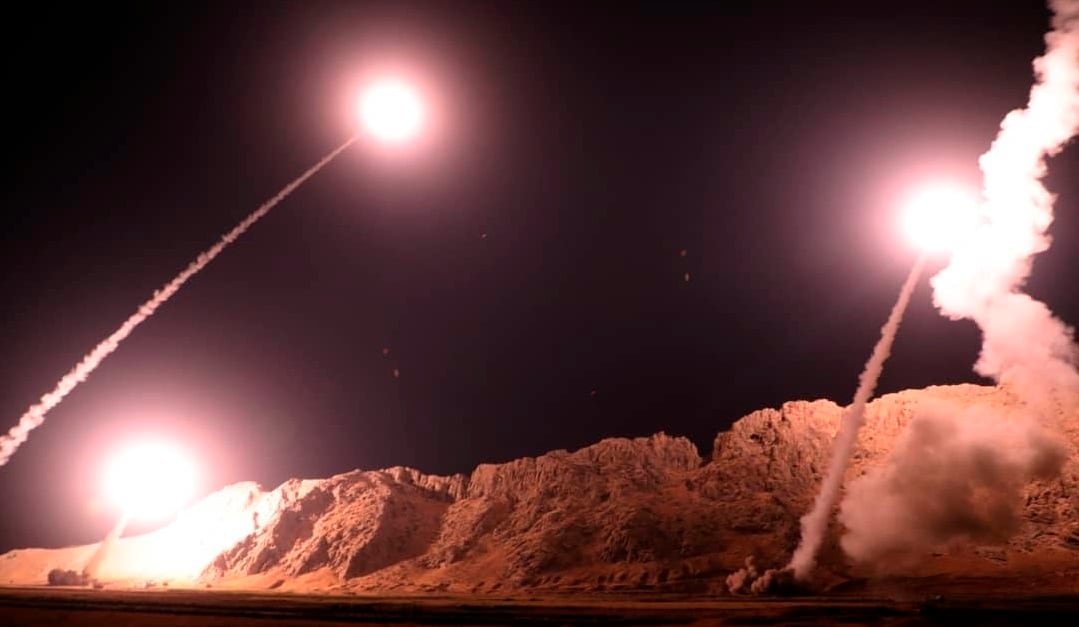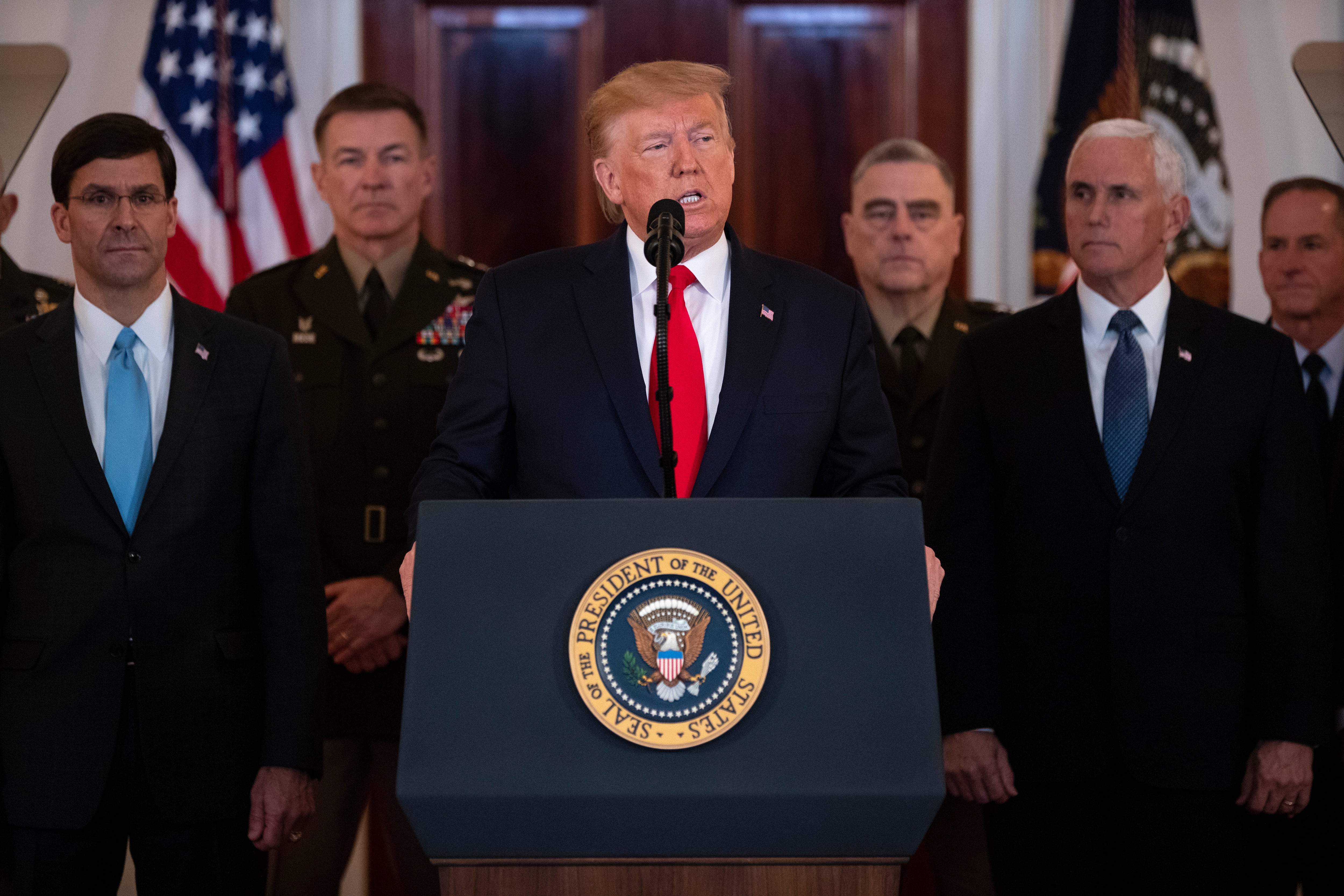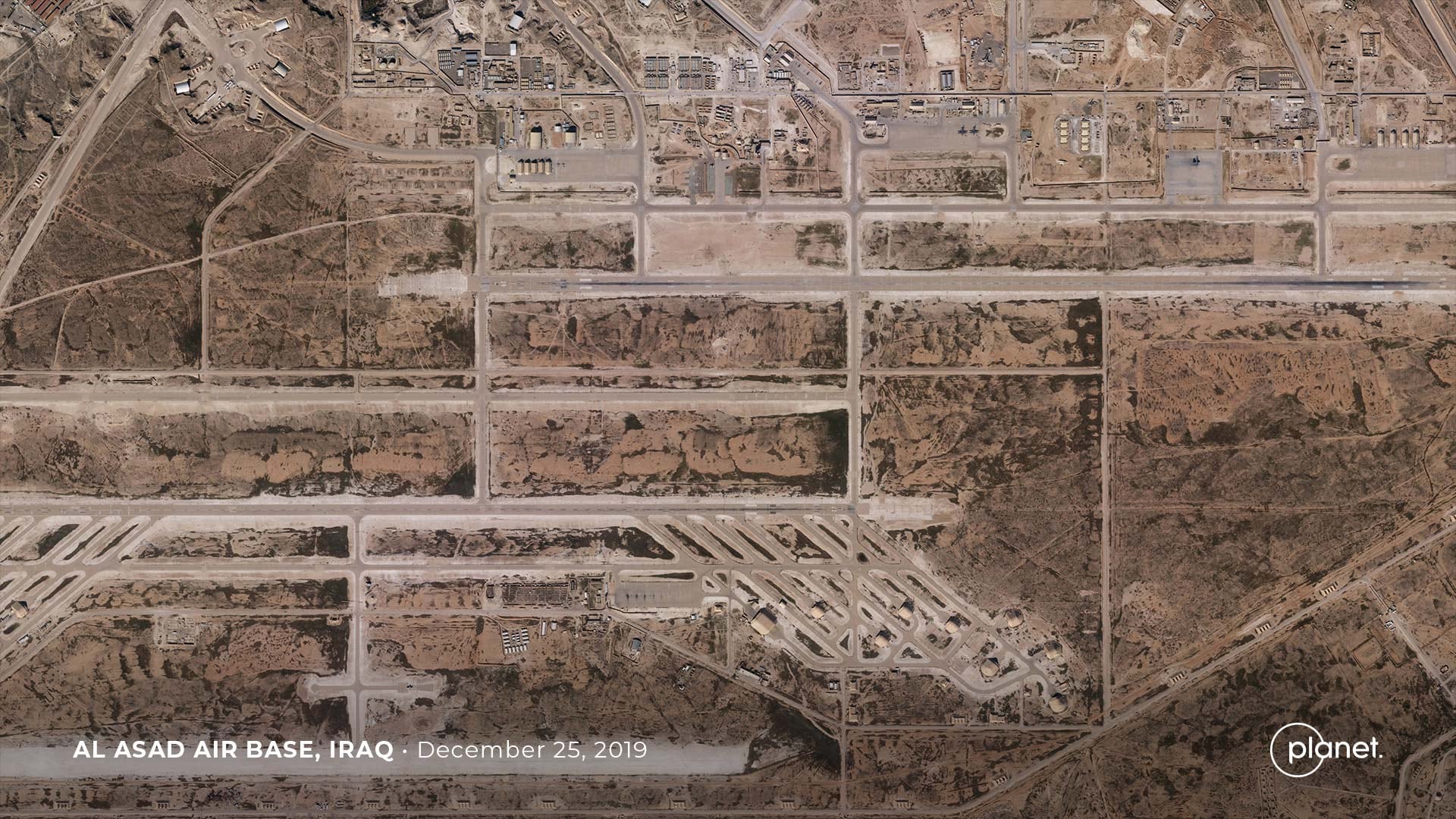President Donald Trump said Iran appears to be “standing down” after a missile attack on U.S. military facilities in Iraq on Tuesday, but warned that the regime still faces economic sanctions and potential military reprisals if it continues aggression in the region.
“Peace and stability cannot prevail in the Middle East as long as Iran continues to foment violence, unrest, hatred and war,” Trump said in an address to the nation from the White House on Wednesday morning.
“The civilized world must send a clear and unified message to the Iranian regime that (their) campaign of terror, murder and mayhem will not be tolerated any longer.”
RELATED

The commander-in-chief confirmed earlier reports that no U.S. personnel were injured in the missile attacks, which struck servicemember housing units at al-Asad airbase and Erbil International Airport. He also added that “only minimal damage was sustained and our military bases.”
The Iranian military action came in response to an American air strike last week in Iraq that killed Iranian Quds Force commander Qassem Soleimani. Administration officials said that decision was based on evidence that Soleimani presented an imminent threat to U.S. troops and civilian personnel in the region.

Flanked by the Joint Chiefs of Staff and Defense Secretary Mark Esper, Trump in his Wednesday speech said that the American public should be “extremely grateful and happy” that the Iranian response resulted in no casualties, which he credited to the United States’ “great military and equipment” as well as defense budget increases backed by his administration in recent years.
He offered no indication that an American military response was imminent. But he did say he would ask NATO to “become much more involved in the Middle East process.”
“For far too long, all the way back to 1979 to be exact, nations have tolerated Iran's destructive and destabilizing behavior in the Middle East and beyond,” Trump said. “Those days are over. Iran has been the leading sponsor of terrorism and their pursuit of nuclear weapons threatens the civilized world. We will never let that happen.”
Trump also repeated his justification for killing Soleimani — “his hands were drenched in American and Iranian blood” — and also criticized former President Barack Obama for not taking strong enough action against Iran to curb their support of terrorism.
But the president also promised that “the United States is ready to embrace peace with all who are seeking it” and said Iran should work with the broader international community on shared priorities.
Analysts warned that even if the current crisis calms down, tensions between the two countries will remain in place.
RELATED

Becca Wasser, a senior policy analyst with the Rand Corporation, said Iran may wait a few weeks before resuming lower-level activities, such as attacks by proxy groups, that they have been doing for some time.
But she believes they will ultimately return to the same “malign activities” the U.S. has been concerned about for years.
“It’s taking a pause and walking back from this major crisis, but it doesn’t address any of the underlying issues,” she said of the recent events. “In some ways it’s just putting a Band-Aid over something and not addressing the root cause. It’s only a matter of time before there will be another crisis or something escalates yet again.”
Ilan Goldenberg, director of the Middle East Security Program at the Center for a New American Security, similarly warned against assuming the danger is over.
“We should also keep in mind that this is likely not the extent of the retaliation,” he said. “Some may play out in the days ahead. Other responses may take months or years.”
Leo covers Congress, Veterans Affairs and the White House for Military Times. He has covered Washington, D.C. since 2004, focusing on military personnel and veterans policies. His work has earned numerous honors, including a 2009 Polk award, a 2010 National Headliner Award, the IAVA Leadership in Journalism award and the VFW News Media award.
Aaron Mehta was deputy editor and senior Pentagon correspondent for Defense News, covering policy, strategy and acquisition at the highest levels of the Defense Department and its international partners.



